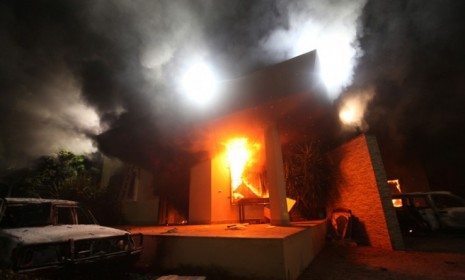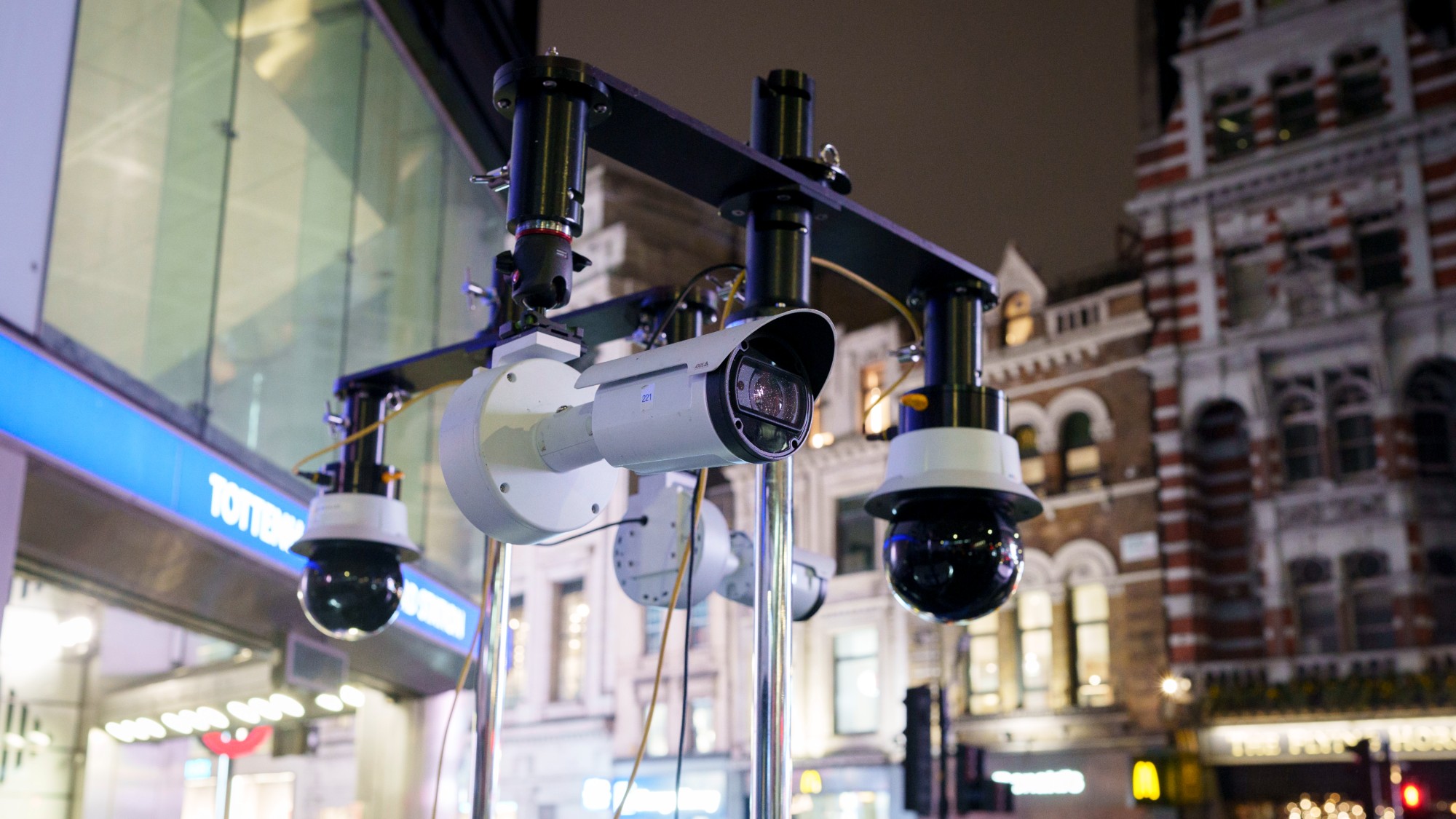A Benghazi Select Committee might be a good idea
If Republicans ask the right questions...


Benghazi, as Adam Gopnik once wrote, was a tragedy in search of a scandal. Not able to find a scandal or a smoking gun — the closest being an email from the strategic communications deputy on the National Security Council advising Susan Rice on how to strategically communicate about Benghazi — Republicans have created one. They've bought the guns, fired them, noticed the smoke, and then yelled, "Smoke!" And lo, with the announcement that Speaker John Boehner plans to appoint a "select committee" to probe Benghazi, an entire arsenal of arms is being set up and ready to fire.
Select committees are Congress' equivalent of loud, attention-getting whistles. The words evoke serious investigations into the Kennedy assassination, trading arms for hostages, the September 11 terrorist attacks, and the Church Committee's probe into U.S. intelligence practices. Often, they produce solid legislation. At their best, select committee reports tell definitive stories of major policy failures, stories that guide politicians for generations to come.
If the Benghazi committee decides to focus on policy, then there's a chance that, despite its partisan origins, it could produce a meaningful critique about President Obama's foreign policy decisions, especially the series of events and assumptions that led the U.S. government to locate a large CIA outpost in Benghazi in the first place.
The Week
Escape your echo chamber. Get the facts behind the news, plus analysis from multiple perspectives.

Sign up for The Week's Free Newsletters
From our morning news briefing to a weekly Good News Newsletter, get the best of The Week delivered directly to your inbox.
From our morning news briefing to a weekly Good News Newsletter, get the best of The Week delivered directly to your inbox.
Here are some specific questions I'd like to see asked and answered:
A good Benghazi probe could look at the Obama/NATO strategy for Libya. Was there really a humanitarian crisis that compelled an intervention? Was the intervention complicated by factors that should have been foreseen?
Should the U.S. have sent arms to Libyan rebels? With al Qaeda remnants and insurgents so easily mixing with opposition forces, was there any way to prevent guns and instruments of war from falling into the wrong hands?
Did the CIA have enough people to complete the Benghazi mission? Should the CIA be deployed so globally without appropriate counter-intelligence resources?
A free daily email with the biggest news stories of the day – and the best features from TheWeek.com
When the U.S. decides to intervene in countries even without "boots on the ground," how many actual boots need to be on the ground? How wide a footprint is no footprint equivalent to?
Are the State Department and Department of Defense stretched too thin for counter-proliferation missions of this sort?
How do risk evaluations work their way through the national security interagency process? Can the CIA, the State Department, or the Defense Department push back against policy decisions that would subject their personnel to danger that is disproportionate to the threat?
Did the Obama administration think through the economics and consequences of intervention clearly? What was the decision chain?
What national security equities were at stake had the U.S. and NATO not decided to intervene? What alternates existed to large intelligence agency deployments? Is the CIA too eager to take on these missions? Are they winnable? What constitutes winning?
Marc Ambinder is TheWeek.com's editor-at-large. He is the author, with D.B. Grady, of The Command and Deep State: Inside the Government Secrecy Industry. Marc is also a contributing editor for The Atlantic and GQ. Formerly, he served as White House correspondent for National Journal, chief political consultant for CBS News, and politics editor at The Atlantic. Marc is a 2001 graduate of Harvard. He is married to Michael Park, a corporate strategy consultant, and lives in Los Angeles.
-
 Heavenly spectacle in the wilds of Canada
Heavenly spectacle in the wilds of CanadaThe Week Recommends ‘Mind-bending’ outpost for spotting animals – and the northern lights
-
 Facial recognition: a revolution in policing
Facial recognition: a revolution in policingTalking Point All 43 police forces in England and Wales are set to be granted access, with those against calling for increasing safeguards on the technology
-
 Codeword: December 14, 2025
Codeword: December 14, 2025The daily codeword puzzle from The Week
-
 Has Zohran Mamdani shown the Democrats how to win again?
Has Zohran Mamdani shown the Democrats how to win again?Today’s Big Question New York City mayoral election touted as victory for left-wing populists but moderate centrist wins elsewhere present more complex path for Democratic Party
-
 Millions turn out for anti-Trump ‘No Kings’ rallies
Millions turn out for anti-Trump ‘No Kings’ ralliesSpeed Read An estimated 7 million people participated, 2 million more than at the first ‘No Kings’ protest in June
-
 Ghislaine Maxwell: angling for a Trump pardon
Ghislaine Maxwell: angling for a Trump pardonTalking Point Convicted sex trafficker's testimony could shed new light on president's links to Jeffrey Epstein
-
 The last words and final moments of 40 presidents
The last words and final moments of 40 presidentsThe Explainer Some are eloquent quotes worthy of the holders of the highest office in the nation, and others... aren't
-
 The JFK files: the truth at last?
The JFK files: the truth at last?In The Spotlight More than 64,000 previously classified documents relating the 1963 assassination of John F. Kennedy have been released by the Trump administration
-
 'Seriously, not literally': how should the world take Donald Trump?
'Seriously, not literally': how should the world take Donald Trump?Today's big question White House rhetoric and reality look likely to become increasingly blurred
-
 Will Trump's 'madman' strategy pay off?
Will Trump's 'madman' strategy pay off?Today's Big Question Incoming US president likes to seem unpredictable but, this time round, world leaders could be wise to his playbook
-
 Democrats vs. Republicans: who are US billionaires backing?
Democrats vs. Republicans: who are US billionaires backing?The Explainer Younger tech titans join 'boys' club throwing money and support' behind President Trump, while older plutocrats quietly rebuke new administration
